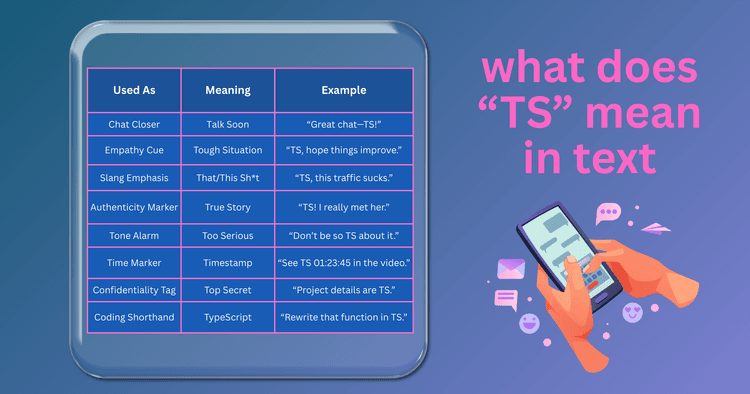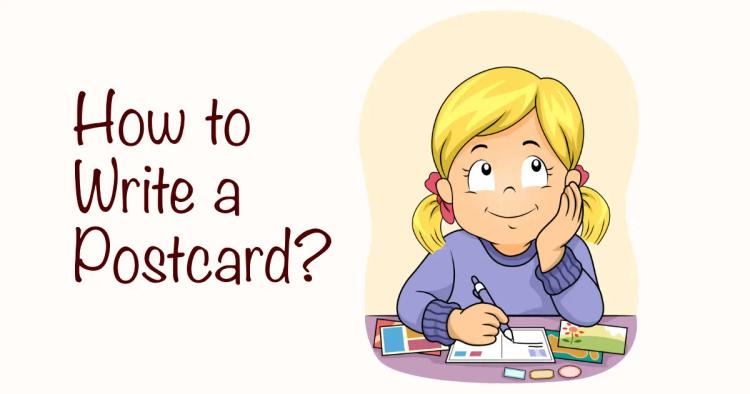Welcome to the world of words, where each sentence is a brushstroke painting on the canvas of your thoughts. Writing is like creating a melody, a dance of expression that captivates the reader's heart. But just like in a dance, balance is key.
This blog post is your guide to the delicate art of quoting, steering you away from the pitfalls of drowning your voice in a sea of borrowed words.
Have you ever read something that felt like a patchwork quilt of quotes? It's like attending a concert where every instrument plays at once – chaotic and confusing. This happens when we fall into the trap of block quote overload, using too many quotes without letting our voice sing through.
Let's unravel this mystery and learn how to balance the beauty of quotes with the power of your unique expression.
ᴀᴅᴠᴇʀᴛɪsᴇᴍᴇɴᴛ
When should I quote?
Quoting is like adding spices to your favorite dish – it enhances the flavor. But just as you wouldn't drown your pasta in salt, you shouldn't overload your writing with quotes. Use them to highlight, emphasize, or support your ideas.
Quotes should be the seasoning, not the main course. Knowing when to quote is like knowing when to sprinkle that pinch of salt – it's about balance. Quotes should complement your writing, not take it over. They should be the supporting actors, not the entire cast. So, quote wisely and let your voice be the star of the show.
The Pitfalls of Block Quote Overload
Imagine reading a story where every other sentence is someone else's words. It's like trying to listen to a friend but hearing too many voices at once. That's what happens when we use too many block quotes. It's like turning up the volume on everyone else and turning down our voice.
Drowning Your Voice: Your voice is what makes your writing unique, like your fingerprint. Using too many block quotes is like putting a mask on your voice. It gets lost in a crowd of other people's words, and readers might struggle to hear your thoughts.
Confusing the Reader: Have you ever tried to follow a map with too many routes? It can get confusing, right? The same happens when readers try to follow your ideas through a maze of block quotes. It's like a fog that makes it hard for them to see where you're leading them.
Diminishing Impact: Think of your words as stars in the sky. Each one should shine brightly. But if you have too many block quotes, it's like clouds covering those stars. Your message becomes dim, and readers might miss the brilliance of your thoughts.
Striking a Balance in Quoting
Quoting is like adding spices to your cooking. A little can enhance the flavor, but too much can ruin the dish. Let's learn how to use quotes in a way that enriches your writing without overpowering it.
Weaving Quotes into Your Story: Imagine your writing is a beautiful fabric, and quotes are threads of a different color. You want to weave them in so that they add to the pattern without taking over. Use quotes to enhance, not to cover up your unique tapestry of words.
Creating Harmony: Your writing is like a song, and quotes can be the harmony. They should blend with your voice, creating a beautiful melody. Too many quotes are like having too many instruments playing at once – it becomes noise. Balance is key to creating a symphony of words.
Enhancing, Not Overpowering: Think of your writing as a garden. Quotes are like flowers. You want them to bloom and add beauty, not take over the whole space. Use quotes to enhance your ideas, but let your voice be the vibrant garden that readers want to explore.
Finding the right balance is like being a conductor of an orchestra – guiding different elements to create a harmonious composition. In writing, it's about letting your voice shine while using quotes to add depth and resonance.
ᴀᴅᴠᴇʀᴛɪsᴇᴍᴇɴᴛ
The Impact on Reader Engagement
Clarity and Readability
Imagine reading a book with foggy glasses – it's annoying, right? Too many block quotes in your writing do the same thing. They make your message cloudy and hard to understand.
Readers want to follow your thoughts, not stumble through a mist of other people's words. Clear writing is like a clean window, letting your ideas shine through.
Maintaining Flow and Narrative
Think of your writing as a smooth, flowing river. Too many block quotes are like throwing big rocks into that river – it disrupts the flow. Your story should be like a melody, not a bunch of random notes.
Block quotes, when used too much, make your writing sound like a noisy crowd instead of a beautiful song. Keep the flow, and let your voice be the guiding melody.
Alternatives to Excessive Block Quoting
Paraphrasing and Summarizing
Imagine you have a cool story to tell, but you don't want to say it exactly as someone else did. Paraphrasing is like putting that story in your own words – you're telling it but with your unique spin. It's like retelling a joke in your way, keeping the humor alive.
Incorporating Quotes Effectively
Think of quotes as special ingredients in your recipe. You don't want to overpower your dish with too much of one spice. Use quotes as flavor, blending them with your words.
It's like making a delicious meal where every ingredient contributes to the taste. Quotes can enhance your writing when they're part of the whole recipe, not the only thing on the plate.
How should I incorporate quotations into my paper?
Imagine you're telling a story, and suddenly, someone else has something perfect to add. How do you make sure their words fit seamlessly? Let's break it down:
ᴀᴅᴠᴇʀᴛɪsᴇᴍᴇɴᴛ
1. Introduce the quotation.
Think of it like inviting a friend to your party. You don't just throw them into the crowd; you introduce them. Same with quotes! Before you drop a quote into your paragraph, introduce it.
Give a little context, set the scene, and excite your reader to hear what your quote buddy says.
Example:
Before dropping a quote about the importance of imagination, you might say, "As Albert Einstein once remarked..."
2. Insert the quotation itself.
Now that you've introduced your quote buddy, it's their time to speak. Drop the quote into your paragraph like a surprise guest at the party. But remember, they're not the main act; they're just adding to the fun. Keep it short and sweet.
Example:
"As Albert Einstein once remarked, 'Imagination is more important than knowledge.'"
3. Discuss the quotation’s significance.
You've introduced your quote buddy, and they've said their piece, now it's time to talk about it. This is like chatting with your friends about why something is cool or interesting. Explain why you brought in this quote. What does it add to your story? How does it connect to your point?
Example:
"As Albert Einstein once remarked, 'Imagination is more important than knowledge.' This insight challenges the traditional idea that knowledge is everything; it suggests that our ability to dream and create is equally vital."
In a nutshell, introducing a quote is like inviting a friend to your story, letting them say their piece, and then explaining to your readers why that friend's words are important. It's your party, and each quote is a unique guest bringing something special to the conversation!
Understanding the Role of Grammar Checkers
Writing is like building a house. You have the bricks (words) and the design (your ideas), but sometimes the walls might be a bit crooked, or the roof might leak (grammar mistakes). That's where grammar checkers, like Copychecker, come in – they're like helpful friends pointing out where you might need to fix things.
A. The Copychecker Grammar Checker Tool
1. Features and Benefits
Imagine you have a magical friend who reads through your writing and spots mistakes – that's Copychecker. It looks out for things like spelling errors, and grammar slip-ups, and even suggests better ways to phrase things. The best part? It works super fast, saving you time and effort.
Copychecker doesn't just correct mistakes; it also teaches you along the way. It's like having a smart friend who not only fixes your sentences but also explains why and how they should be fixed. This tool is here to make your writing cleaner, clearer, and more polished.
2. Common Grammar Pitfalls Addressed
Let's talk about the common mistakes we all make while writing – misplaced commas, confused tenses, or words that just don't fit. Copychecker is like a superhero that catches these mistakes, helping you look like a grammar pro without having to remember all the rules yourself.
Remember the time you wrote "their" instead of "there" or "your" instead of "you're"? Copychecker catches these slip-ups, ensuring your writing is spotless. It's like having an extra set of eyes that never get tired.
B. Balancing Grammar Checks and Originality
Now, you might wonder, "Will Copychecker make my writing sound robotic?" Absolutely Not! Think of it as your sidekick, not your boss. It suggests improvements, but you decide whether to accept them.
Your unique style, your voice, that's what makes your writing yours – Copychecker is just there to make sure your brilliance shines through without any distracting grammar hiccups.
So, use Copychecker like a pro. Let it catch the small stuff so your big ideas can shine. It's your grammar guardian, your writing ally, always ready to help you present your best work to the world.
ᴀᴅᴠᴇʀᴛɪsᴇᴍᴇɴᴛ
Striving for Originality
A. Recognizing and Avoiding Plagiarism
Originality is like having your signature in the world of writing. It means your thoughts, your words. But watch out for plagiarism – it's like copying someone else's signature and pretending it's yours. Here's how to avoid it:
Understanding Plagiarism: Plagiarism is using someone else's work without giving them credit. It's like taking a cake someone else baked and saying you made it.
Cite Your Sources: When you use someone else's ideas or words, give them credit. It's like saying, "Hey, this part is from Mary's book," and it's the right thing to do.
Put it in Your Own Words: If you read something cool, don't copy-paste it. Put it in your own words. It's like telling your friend about a movie you saw, but not using the exact script.
B. Navigating Citation Guidelines
Citations are like road signs in your writing journey. They tell people where you got your information. Let's navigate them smoothly:
Follow the Rules: Every style of writing has rules for citations – like MLA, APA, or Chicago style. It's like following the recipe to make a perfect dish.
Be Consistent: If you start citing a certain way, keep doing it the same way. It's like wearing the same uniform to school – consistency makes things clear.
Ask for Help: If you're not sure how to cite something, ask for help. It's like asking for directions when you're lost – it gets you back on the right path.
Practical Tips for Writers
A. Manual Editing vs. Automated Tools
Editing is like giving your writing a makeover – making it look its best. Let's explore the manual touch and the automated magic:
Manual Editing – Your Personal Touch: Read your writing slowly. Check for mistakes and think about how it sounds. It's like polishing your shoes by hand – a personal touch makes a difference.
Automated Tools – Your Writing Buddy: Tools like Copychecker are like little helpers. They find grammar mistakes and suggest improvements. It's like having a friend check your homework – extra eyes make it better.
Use Both – A Dynamic Duo: Combine manual editing and automated tools. It's like having both a bike and a helmet for a safe ride – each has its role, and together they make your journey smoother.
B. Seeking Feedback and Peer Review
Getting feedback is like having friends taste your cooking before serving it to guests. Let's dive into seeking feedback and peer review:
Be Open to Suggestions: When someone gives you feedback, listen. It's like trying a new game – you might discover something fun.
Embrace Constructive Criticism: Constructive criticism is like a coach helping you improve. It's not about saying you're bad; it's about making you even better.
Build a Writing Circle: Share your work with friends or other writers. It's like a book club for your own stories – different perspectives make your writing richer.
FAQs
When Should I Quote?
Quote when someone says something in a way that's perfect and you can't say it better. Make sure it adds value to your writing.
Are too many block quotes bad?
Yes, too many block quotes can make your writing messy and confuse your readers. Use them wisely.
Is there a limit on block quotes?
While there's no strict limit, it's best to use block quotes sparingly. Aim for balance in your writing.
How many quotes are too many in a paper?
It depends on the length of your paper, but generally, don't let quotes take over. Your ideas should shine more.
Should block quotes be 4 or more lines?
Not necessarily. Use block quotes for longer bits, but if it feels too long, consider breaking it down or paraphrasing.
ᴀᴅᴠᴇʀᴛɪsᴇᴍᴇɴᴛ
Conclusion
In the big picture of writing, it's like doing a special dance with words, quotes, and grammar tools. Don't use too many quotes, find your way of writing, and let your words be real. If you get the balance right, your writing can be like a beautiful song that stays in the hearts and minds of the people who read it.







